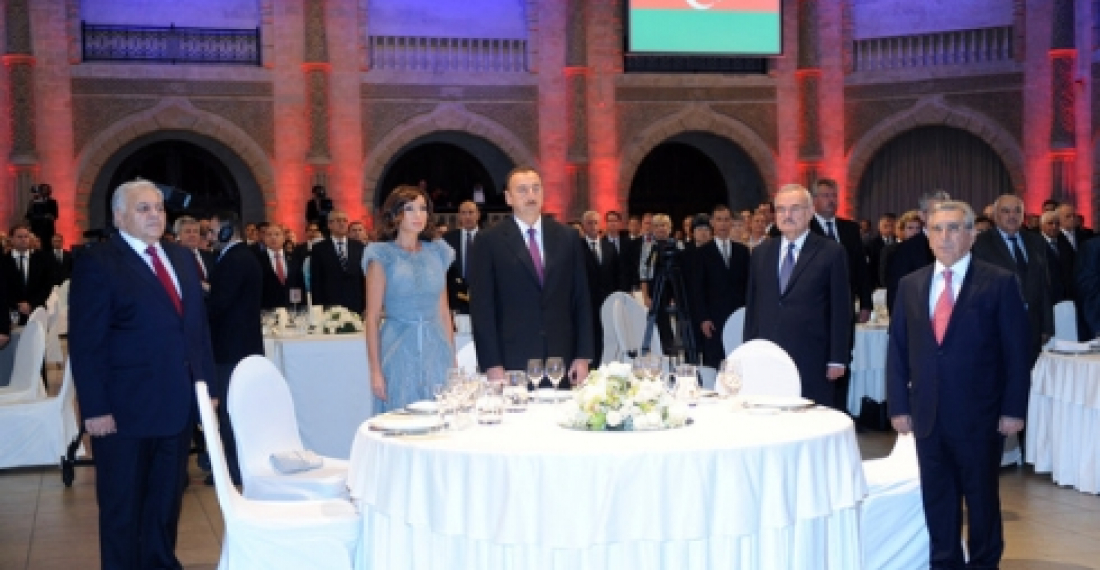Azerbaijan is celebrating Independence Day. On 18 October 1991 the Supreme Council of Azerbaijan adopted a law on State Independence, and this was later confirmed in a popular referendum held in December 1991.
President Ilham Aliev led the guests at an official reception to mark the event, held at Buta Palace in Baku and attended by senior state officials. Speaking at the gathering President Aliev said that since independence "the Azerbaijani people showed how a great nation it is. For 20 years we have made great strides. I am sure that in future we will multiply these successes, we will work hard for the full development of our country and create a more powerful and beautiful country".
source: commonspace.eu newsroom
photo: President Aliev, accompanied by his wife, the Speaker of Parliament, the Prime Minister and the Head of the Presidential Administration lead guests at the official reception marking the 20th anniversary of Azerbaijan Independence (picture courtesy of the Press Service of the President of Azerbaijan).







